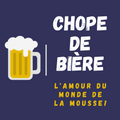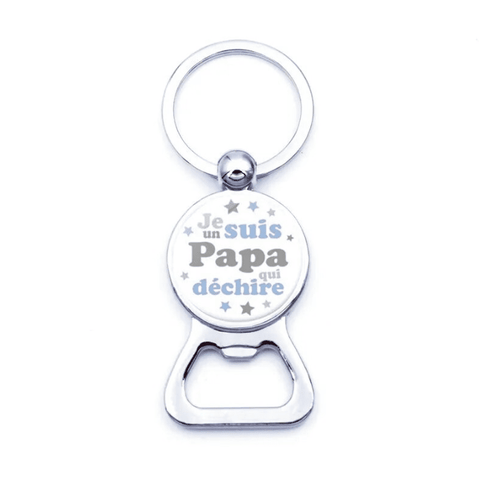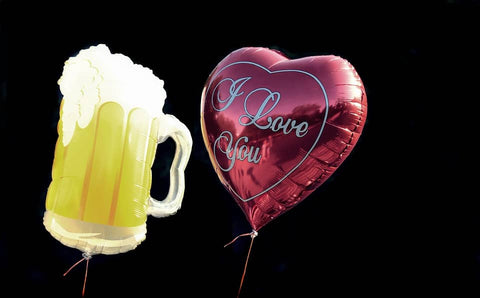
How to Write a Beer Mug?
of reading
When you see the title of this article, you're probably wondering why I wrote it. In fact, the reason is quite simple: there are many spellings listed when people search on Google:
- Beer mug
- Beer mug
- Beer mug
- Beer shop
- Beer Shop
In most cases, this is due to a lack of knowledge of the French language, but each spelling has a specific explanation . I found it interesting to look into this issue in order to help my readers understand where these errors come from.
The correct spelling of a beer mug
When you see this word written this way, it must seem perfectly normal to you. And yet, as I told you previously, thousands of Internet users write it differently. Initially, the word chope comes from the German Krug, which means pitcher. Then the word was transformed in the Alsatian language to end up as Schoppe . Info from Wikipedia !
This regional language is a mix of French, German, and patois. It's from this dialect that the word "chope" (chopped) that we use today, although it has evolved, was born . We'll now move on to explaining the other spellings. I think you already have a little idea, though, given the original word that led to "chope."
Why write beer mug?
I had to start with the etymological history of the word chope to begin my explanations. Why do some people write this word with 2 p's? This is due to our heritage of Alsatian dialect. I don't know if you're French or "simply" French-speaking, but I'm sure what I'm going to say is applicable to Belgium, Switzerland, Quebec, or other French-speaking countries: our language is teeming with local dialects.
I'll give you a simple example. My wife is from Burgundy. Her parents were born and lived in villages located 2 km from each other. In their village dialect , the same object could be expressed either in the same way or in a radically different way. There is no common etymological root between two words meaning the same thing.
Yet the distance between the two villages was ridiculous. They often had fun calling things in their dialect and actually realized that they didn't understand each other without explanation! They come from the same region, the same department, the same culture and yet the glaring differences in vocabulary were glaring .
If you multiply the number of villages in a country, you'll easily understand the linguistic differences there can be. People in the north of France call a sac what they're given when they go shopping. For those in the south, it's a poche. The same goes for pain au chocolat in the north, which becomes a chocolatine in the south. There are many similar examples in our language.
If some people write the word chope with 2 p's, it's simply because the original word schoppe is written with 2 p's . In German, the pronunciation "ch" is systematically written "sch". In French, the s was therefore removed but some kept the 2 p's. It must have been the die-hard Alsatian Gauls who preferred this spelling!
Why write beer mug?
While the explanation of the two p's seemed logical, the removal of the e may seem more enigmatic. The reason the "e" disappeared is likely because it is silent . Indeed, phonetically, chope and chop are pronounced the same way. It was through research that I came to this conclusion.
To arrive at this 4-letter word, we still start from Alsatian but we remove 2 letters , the “extra p” and the “e”.
Why write beer shop?
There are several explanations for this spelling, but as you might expect, the English language has something to do with it ! Some internet users write "shop" to mean a store. These people aren't actually interested in a beer mug. They're simply looking for a beer retailer.
Then comes the second category, those who are looking for a mug but write it "shop style." From what I understand, they base their spelling on the word mug as they hear it phonetically. The spelling they associate with it is then distorted by the increasing omnipresence of English words in our beautiful language of Molière.
Why write beer shop?
So, the most likely thing is that it's a combination of Alsatians and Anglicized people! This spelling mixes the 2 p's of the original word and the beginning of the English word magasin. I don't have the exact explanation, but that's the conclusion I ended up coming to...
Otherwise I have one last hypothesis: people started from the Alsatian Schoppe and just removed the c . In any case, people are apparently overflowing with ideas when it comes to writing the word chope!
In conclusion, you may have noticed that there are many spellings for the exact same thing . And yet, I haven't even mentioned the confusion surrounding categorizing a beer mug as a feminine or masculine word . Nor have I combined the names of the beer mug with the fact that some people call it a beer mug.
If I combined all these factors into one article, it would be endless! So I decided to divide these three proven facts into three separate articles. The common point that exists in any case is that the French language is definitely a living language . It has evolved and continues to do so. This is one of the things that makes it so interesting!
If you had the patience to read my article to the end, know that you can benefit from a 20% discount on your entire order by entering the code BLOG20 in your basket.
I reserve this code for my most loyal readers. who discovered our site through the articles I post with love! For your information, the code cannot be combined with other discount codes because you shouldn't overdo it, eh! 20% off doesn't leave us much room to spare, but at least I'm rewarding my readers.
To encourage and support me, don't hesitate to buy something from us! 😊
Our site offers more than a hundred beer mugs different and all unique! We have the largest selection online and in physical stores.
To discover all of our products, click on this link: Chopedebiere .
If you'd like to read one of my other articles, I suggest you discover 9 practical uses for expired beer .
To see all my other blog posts, click on Chopedebiere Blog.




















